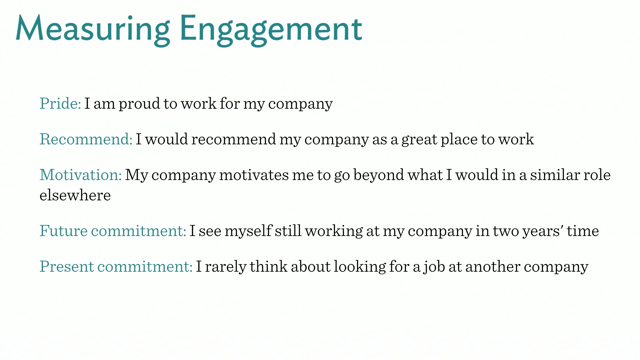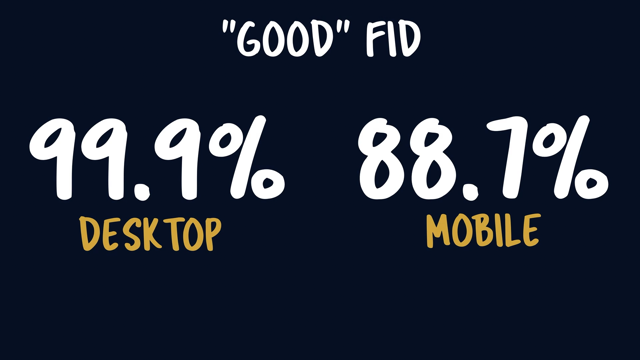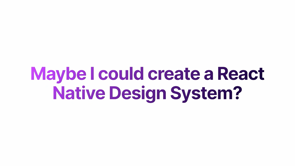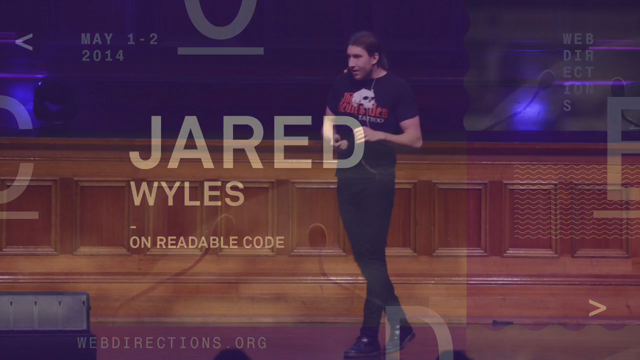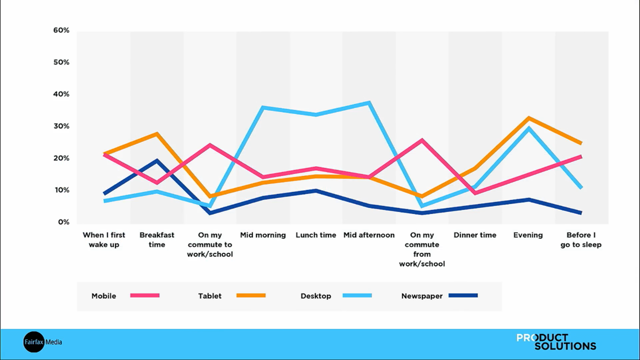
(electronic music) (applauding) - Thank you.
I wanted to start my talk today with a bit of a story. And I thought I'd start by setting the scene because this story takes place in London.
And it was late November, the weather was miserable. Raining outside, gets dark by 4:30 p.m.
And all of my friends have gone down to the pub. They were enjoying a nice glass of wine.
Christmas lights were all down Oxford Street, and it was actually quite pretty.
And I was stuck in my office because I had to finish writing the self-assessment for my performance review.
Not a pleasant task.
I was looking back over the last year, looking back to my goals that I'd set up the January before, and some of them were kind of irrelevant now.
They didn't really feel like the right things to be doing a year down the line.
I had to rate myself on things like how good am I on technical skills for my job, communication, various other things.
Anyway, so I finished it.
I actually did get to go out to the pub and have a glass or two of wine that night as well, and a few weeks later, I think it was January, I was sat down with my boss, and we went through this self-assessment.
And she'd gone and got feedback from a bunch of my colleagues, as well, before we sat down together. And everybody else had rated me.
I wasn't too bad, this was on a scale of one to five. I had a few people who'd give me fours, which was nice. I had some threes.
One person had given me a two.
And I was looking at this, and I was like who was this? What did I do to deserve a two out of five? That's terrible.
It really stuck with me, even all these years later, this is the one thing I remember from that review. One of the things.
So anyway, a little bit further on they had a great system where everybody was expected to be above average, so the average score was 3.5, and my manager confirmed to me at some point in March that that was my rating, 3.5 So this was good.
This was not a bad performance review.
And then in April I finally got the paycheck with the pay rise from this performance review. And this seemed so wrong to me.
This had taken four months since I was sat in this office, miserably doing this self-assessment, looking back on a year's worth of work, and it wasn't until April that I was actually seeing the benefit of it.
This isn't atypical.
This is something that many companies follow a process like this.
Performance management done in this traditional way is pretty broken.
Now in fact, only 29% of people think their performance review results that they get from these kind of processes are even fair.
And there are tonnes of stories.
I asked people to share some of their great stories about performance reviews that had been a bad experience. One guy had told me about a time he was working in retail and he had switched from a job which was more technical in nature, sorry, more training in nature, to a technical role. And his promotion came about 30 days before the company started its annual review cycle.
And he'd really tried hard in this new role. He was really loving it, he was pushing himself, he was learning all these new things, and he had lots of feedback that he was doing really well in the new role.
However, when they went to do the performance review the criteria that they measured him on were the ones for the new role.
So he was being measured on the same things as people who'd been in that role for several years. And so I don't think there's many people in this world who could really be knocking it out of the park after 30 days compared to people who'd been doing the role for years.
So not surprisingly, he didn't get a great review. And that then reflected in his pay rise.
How do you think he felt? It was super frustrating.
This is just, like, not fair.
I was putting all my effort into this new role. Everyone said I was doing great, and yet I get a negative review, and that stays on file. So what do HR think? Is this useful? We actually found that 9 out of 10 people in HR say that the performance review process doesn't even give them accurate information that they can use for people.
Now, I wanted to tell you another story about one of my friends who was working with a woman who was underperforming.
And the CEO in the company wasn't very good at giving people constructive feedback.
They didn't know how to have those difficult conversations. So instead of sitting down with this woman and explaining what she needed to do, they decided to let my friend manage her.
And they worked together, my friend and the CEO, and eventually they decided that probably the best thing to do was to let this woman go.
Now this was in the USA, so it's much, much easier to hire and fire people at will.
And they worked together, prepared for this conversation, her performance review conversation where they were going to let her go.
And then they all sat down in the room together and they asked the woman, how do you think you've done? And she was like, I think I'm doing great, I'd actually like to have more hours.
And the CEO, rather than facing up to this difficult conversation, decided to agree with her.
Yes, you can have more hours.
My friend was just flabbergasted.
Spent all this time preparing for a difficult conversation. We know how hard it is to have to give somebody constructive feedback.
This was going to be very hard, and he'd stressed about it, and then it didn't even happen.
And he still had to deal with this woman who wasn't able to perform after the conversation. And so for many of us as well, the process is not very transparent.
Somebody else told me about a time when they had a performance review conversation and it went well. She got a positive performance review.
Few weeks later she got her paycheck, and she had an unexpected salary bump.
You know, that's kind of nice.
That's exciting.
But at the same time, she felt this sense of kind of irritation.
Why didn't my manager tell me I was gonna get a pay rise? Did she not care enough? Was she just so disorganised? Did she not even know? What did I do to deserve it? There's no useful feedback loop coming back from that information.
And somebody else had told me of a time when their manager had sat down, had a conversation, they'd agreed a pay rise.
This manager was due to leave the company a few weeks later. And so before he left, he'd agreed with her he would get all of the paperwork sorted for her pay rise, get it over to HR, which he did, and he left. She got her paycheck a few weeks later, but the amount wasn't right.
It didn't add up to what they'd agreed to.
So she went and talked to HR and said what's going on? Well, they went through the files, they dug out the form that the manager had signed.
The amount on the form was different to what they'd agreed together in the meeting.
She had no way to understand why this had changed. Again, no feedback, no transparency.
She was really confused, and she really felt like this was unfair.
Now with all of this stuff, all of these bad stories, and it's not even just big corporates.
I had another story from one of my colleagues at Culture Amp, when he was coming to join Culture Amp. And in his startup company he'd been there a year. And he went to his manager to say, you know, in the long-term future I'd like to have a leadership role. I'd like to have a pay rise, maybe one day. And the manager said, well, you know, you're getting paid pretty well, actually.
He said, okay, fair enough, but can you at least commit to doing a review every year? And the manager said, well, it's a startup. It's not really what we do.
So he said, okay, fair enough.
And fast-forward a few months, we offered him a role with an increase of about a third of his salary, and what do you think the manager said? Well, hang on, hang on, we can match it! Don't go! I didn't even know what you were earning.
Performance reviews, the way most companies do them in a traditional way, it's usually a lot of work. The proportion of people who get a raise or a change, is about 10%.
So we are doing all of this work, I was spending my night stuck in that office when I could have been out having a good time, doing this work just to cover our asses, basically. It's really a waste of time.
Back when performance reviews were done on paper, one of my other friends was handed the piece of paper her manager had been given to fill in for her, and he asked her to write her own performance review which she did.
She gave it back to him.
He didn't even read it.
He signed it and he just handed it off to HR. She said where's the feedback, like, how does this help me to grow and progress and know what I need to do? This is broken.
So what do we need to do instead? The first step is to move towards a culture of feedback instead of this culture of just evaluation. The first thing we need to do is to separate the conversations we're having around growth from the conversations we're having around evaluation. When you think about a performance review process, the traditional one is trying to do all of these things at once.
It's trying to assess how you're going, give you some feedback that you can use to work on, and also figure out what your salary raise should be, whether you should be promoted or not.
Three years ago at Culture Amp our CTO went off for his Christmas holiday, and when he came back he'd built a prototype 360 product.
This is how he likes to spend his spare time. And since then we've been using this product. We've used to run 360 surveys internally, and we've used it for our customers.
We've built it up now into something that we use with our customers.
And so we've learned a lot from doing that about how to run effective 360 surveys.
One of the things we were really committed to from the very beginning is that we completely separated it from performance evaluation.
So when I run a 360 survey at Culture Amp it's in my control when I set it up.
I can choose who I want to ask for feedback. In fact, the last one I ran I didn't even ask my manager for feedback.
He wasn't too happy, but I got a pretty good result. And we make sure that we don't take the results of this 360 survey into consideration for performance evaluation.
This is all about looking for what people need to do to grow.
So the process is entirely controlled by the person who wants to run it.
And it is all about trying to find feedback. What are the things I need to do to grow and to improve? What we've found is, as well as highlighting areas to improve, it actually does a lot to build confidence. The first 360 that I ran at Culture Amp, I got a lot of people commenting on the fact that I can be quite, I want to say disruptive, that's not quite the right word, but I like to, when I see a problem, I'm trying to improve things.
And this was something that I felt a bit like a squeaky wheel some of the time.
But I found that people actually appreciated that I would raise things and try and find solutions. And so this gave me a lot of confidence to kind of keep doing it, keep trying to improve our processes. I kind of felt like I was a pain in the ass most of the time so feeling appreciated made a big difference for me. The other important thing about the 360 process is to create an action plan.
So if you run employee feedback surveys then quite often at the end you'll make sure you actually take action and measure to see if it's improving.
And we need to do the same when we're doing a 360. We shouldn't just be reading the feedback, but actually thinking about what are the areas, what am I going to do to improve? Now in spite of doing all of this at Culture Amp for the last few years, in our most recent employee engagement surveys, we were still seeing that we had a lot of room to grow in a couple of areas. One was recognition, and the other was career paths. So I set out on a project earlier this year, and I wanted to kind of bring some clarity to how you could grow and progress your career at Culture Amp.
Specifically, I wanted to do this for our product group. It's a group of people building our product. I think with the 360 surveys, while they were very useful, we were getting great feedback, there wasn't a link between the 360 and the performance evaluation where people could identify the things they actually needed to do to progress.
So we needed to make sure that our performance evaluation process was very clearly aligned to the 360 process so that when we were getting feedback we were actually getting feedback on the skills and on the things we needed to improve on in order to move forward in our career.
So the starting point for where I wanted to go with this was to think about our values.
And this has come up, I think, from a number of presentations this morning, the importance of our values in making sure we have an effective team.
Our values at Culture Amp are having the courage to be vulnerable, learning faster through feedback, trusting people to make decisions, and amplifying others. So this was my starting point, these were the things I wanted to make sure whatever we built, that we were rewarding the right behaviours that were aligned with our values. And it's super important when you're trying to build a system that is gonna work to help people figure out how to grow and progress in your career when this is affecting your reward system. It needs to be aligned with your values.
You want to make sure you're rewarding the right kind of behaviours.
And on that note, I wanted to show this video. This is from a London recruitment company, and they shared this clip with the title that this is about their culture.
It's an insight into their culture, their environment, and their incentives.
(rock music) ♪ Whoa ♪ ♪ Ohh ♪ ♪ Ohh ♪ ♪ Whoa ♪ ♪ Oohh ♪ ♪ Ooh ♪ (laughing) How many people thought that was a parody? (audience laughing) So did a lot of Twitter.
It's actually genuine.
Don mentioned in his presentation this morning that quite often, despite the fact that we say teamwork is super important, we celebrate the lone genius. And this is exactly what they're doing.
They took their top performers on a trip to Ibeza to party, and what this says to me is, aside from the diversity issues, by the way, I'm not even gonna go there.
(audience laughing) Really what this says to me is that there is a big emphasis on bro culture, on partying. They reward individual contributors.
There is nothing here that speaks to learning, to growing, to helping others, or to teamwork. Now many people commented about this on social media about how it kind of reflects their culture, what it says about their values.
They have responded, they've rebuffed it and said, you know, actually we've had a lot of people who've applied to our company as a result of this video, so perhaps it genuinely was a good insight into their values.
However, when I was thinking about our growth framework and what I wanted to create, I wanted it to not reflect this kind of thing. It was really important to me that we emphasise behaviours that promoted things like teamwork. Promoted behaviours that would celebrate the success of teams over the success of the individuals. We wanted to promote the behaviours that would help people to grow and amplify other people, and to work together with others.
So even though, like when Ted and I were talking this morning in Don's presentation, and he pointed out we pay salaries to individuals not teams, which is true, we can't kind of design a reward system to reward teams, or at least that's not what we were planning to do.
At the same time, we wanted to create a system that would really emphasise the behaviours that would help the teams to be successful. We were very clear, as well, right from the beginning, that we didn't want to have a laundry list of things that you could tick off in order to get a promotion.
These could not be tasks.
We wanted to build consistent, good behaviours. I also knew that, whatever we built, it needed to work for everybody in the product team. There's a lot of frameworks out there that are built for engineers, but our team consists of also product managers, QA's, and so from the very beginning this was something that I wanted to make sure would work for all of those different roles.
Now if you've seen Kevin Yang's talk, he talked at Culture Amp, Culture Amp, sorry, he talked to Web Traction's co-leaders in August of this year, and he talked about the fact that we have a lot of different career paths for engineers. You can become a team lead, a tech lead, you can run a practise, so front-end, for example, back in engineering.
There's different paths into leadership and even without any of those there's lots of different opportunities where you can lead various projects. And so when I was thinking about what I wanted to create and the clarity I wanted to create, I really wanted to emphasise the non-technical skills. This is not just about saying if you learn all of these technologies this is the path to becoming a senior engineer. But I wanted to make sure that we were very clear about these behaviours and soft skills, or leadership skills, that we wanted to reward as well. So these clear requirements were a pretty good starting point.
First of all, I had our values, we knew we didn't want a laundry list, and we knew we wanted it to work for everybody, and look at the technical skills as well as the non-technical skills.
So we looked at what other companies had done, and this is one of my favourites.
This is the Medium's framework.
They call it the snowflake framework.
It's quite extensive, and it's available online. You can actually go through and rate yourself on all of their different behaviours and see what your total score is.
Some of the things I really liked about this were how they really emphasised non-technical skills. They only really had four that were specifically related to technology.
However, they really didn't make it very much a scoring system.
Everything was weighted equally.
So I knew we wanted to replicate some of the things they'd done.
I really liked their kind of four-by-four system where they have these four different coloured sets of boxes here which are four different categories. Within each category they had four tracks.
And we like this, but we didn't want to have this point system where you could basically plug in all your ratings and then out pops a staff engineer, or a senior engineer.
So this was our starting point.
We looked at a number of others as well.
And then we went divergent.
With this kind of guidance that we were gonna have roughly 12 tracks that would be common across all roles, common skills, things like communication, some of the things they've got in here around well-being and stuff like that that we liked. We were gonna try and have 12 that would be common across all the roles in product, and then we would have four that were just specific to a technical role.
And so we got some groups together within our team, and we sent them off to do their own thinking, and if they were gonna design this, what would the 12 things be that they would come up with. We brought all the groups back together at the end, and we had all these different ideas.
But there was actually a lot of commonalities. A lot of the groups had things that we all thought were important even if they were named slightly differently. So we could go through all of those ideas, bring the together, and pick out the ones that we liked. And this is where we ended up.
We had, like I said, there were things in common across all of the groups.
We ended up with these 12.
We had a lot of Post-Its that we went through along the way as well.
And what I really like is that this feels right for us at Culture Amp.
Although there's a lot of different frameworks in the public domain, every company is gonna have its own values, it's gonna have its own culture, you're gonna have your own things that you want to reward, behaviours you want to reward.
So by having everybody involved in creating this thing, we made it something that didn't feel inflicted or hopefully doesn't feel inflicted on the teams, but that they were involved in creating.
So they could also have a say in what the important things were.
And so as well as the role-specific behaviours what I liked was we had a good mix.
We had some thing that were really about getting your work done, just executing.
Are you actually delivering stuff? Are you doing it well? That's what craft is all about; is it good quality? How do you solve problems? How do you manage yourself at work? And then we had these other two categories which were really about how you work as a team. Perspective and alignment is all about how you align to the company's strategy; influence: how are you having an impact beyond just yourself? And then growing other people in the team.
So growing others, learning through feedback, and are you curious? Do you keep kind of looking outside and building your own learning? The one that never seems to fit is brand ambassador. And this is something that we really do value, people getting out there and helping to hire other people into the company.
And so that kind of sits there, but it's probably the one that we found was a little bit of a misfit. So once we got to this stage, we then took each of these different tracks, and we broke them down, and we looked at what does it look like in this track to be a junior-level, mid-level, senior lead? We actually have seven levels at Culture Amp all the way up to C suite, but we decided to ignore everything above lead because we would have just been trying to boil the ocean. We wanted to just try and do something that we could roll out to the majority of the team to start with.
So here's an example of what it looks like. We had a couple of definitions that we used as a starting point, so we were looking at impact and autonomy.
For juniors, we expect them to have a little bit less autonomy, to lead a lot more help day-to-day in their work.
At a lead level we expect you to be fully autonomous, to be able to just take direction and then run with a project.
And then for impact, at a junior level you're probably just getting tasks done, and then up to senior and lead, well, your impact will be much wider across your team.
And so that was the guidance we had at the beginning, and we applied that to all of the different areas and thought about what does that look like. What does it look like to be growing others at all of these areas? Now we worked through all of the different roles as well. Like I said, we had these 12 common tracks that would apply to anybody, and then for each of our different practises we designed four tracks that would be specific to them.
We had a lot of talk in engineering about where the front end, back end, infrastructure, and data engineering were four different entirely different things.
We ended up coming up with these categories for engineering, these tracks for engineering, sorry, as four things that could be common for all engineers. It doesn't matter if you work in infrastructure, or if you work in back end, or front end.
The actually relevant technical skills are whatever's relevant to your role.
Design and architecture, technical communication, customer focus, these were things we needed all of our engineers to have.
So for somebody in an engineering role this is what it would look like.
They would be looking at these 16 different tracks to measure themselves against.
For somebody in Product Management we'd substitute in the product management ones instead of engineering.
Same for QA.
I'm not gonna go through all of the roles.
What I really liked is when we first started the growth framework we wanted to acknowledge all of the different skills that people have. So like I said, when Kevin was talking about these different ways that the different career paths that people could have, we want to be able to compare somebody who's chosen to go down a Team Lead path with someone who's chosen to be like a super amazing individual contributor and really do a really complex project, for example, on their own.
We didn't want to be too prescriptive as well. The Medium framework simply weights everything equal and you just get the same point for each one, wherever you are in the level.
But we didn't want to, we weren't entirely comfortable with just weighting everything equally, and early on somebody said to me, we could probably really work this through and figure out the perfect formula for exactly how important we rate each of these things. But when we got there it would be so complicated that nobody would know how to use it.
So we decided not to have any formula at all And I think that when it comes to managing people and evaluating people, that's a real skill. You need a lot of judgement .
So we see what we've produced as a tool that can help managers.
It can help you to think about all the different things that you should be evaluating somebody on.
You can help somebody to grow in all of these areas, but it's not necessarily gonna give you the answers of when you should promote somebody.
That's something you can use the tool to help you make a decision, but it's not gonna substitute your own judgement .
So once we built this thing, through the process of creating it, I really knew that this was something that was quite complex. And we really wanted to emphasise growth.
We didn't want it to just be about evaluation. So we started out by calling it a competency framework, which I think is a common name that a lot of people use, and we decided to rename it a growth framework so that that would really emphasise that this is something we want to use to help people to grow, and not just as a measurement tool.
And to start out with, we asked all of our mentors just to try it for a little while.
We didn't have any tools, and we wanted them to really focus on growth, how they would help their people to grow.
We borrowed a concept from a company called Way to Grow called The Edge.
And the idea was that you would have one thing that you need to sharpen.
Your edge is what you're working on to sharpen. And people could use the growth framework, work through it, and figure out what is their one thing, that edge that they're going to work on.
So did it work? I guess my tl;dr is it's a step in the right direction, but it isn't enough on its own to solve all of the problems that we wanted it to.
One of the big problems we've had is getting the tooling right.
I think we deliberately decided not to build any tooling because we wanted to see how people would actually use it and then design some tools that would reflect how we used it, rather than doing that up front. But it has been painful.
People print it out and make notes on it.
I made some Excel spreadsheets.
It took quite a long time.
What we have found, though, is that it's really helped just to have productive conversations.
So we've had some new managers who've just started managing people, and they've been able to use the growth framework to, first of all, create some structure for the conversations they have with the people they're managing, and also to have confidence in the guidance that they're giving to them.
Another thing I've found very useful is that I've asked people to go through the growth framework, think about how they rate themselves on it, and then we've compared notes.
And although this is a big time investment, I feel like in a company where people are one of our biggest assets, it's one of the most worthwhile things I could have done, certainly with my mentees. And it's revealed blind spots.
So there are things where in the growth framework I actually didn't know what they were doing around a certain area.
So it really helped to highlight some of the blind spots, the things that we should be talking about and we're not. And it's helped to reduce recency bias.
So in a lot of our one-to-ones, when we're thinking about performance, we're thinking about things that are just in the near past, the recent past. But the growth framework meant that we were trying to think through all of the different areas. So overall, I think it's had a really positive impact. I think that just writing growth framework, like I said, it's not enough.
It's been a really big step forward.
The next thing I want to go on and do, and I think we need to do better, is to create more clarity around how do people move into more senior positions? When do they become available? And not just having those different career paths for engineering, but for other parts of our product team as well.
We also need to make sure we help people to use the growth framework in a consistent way, because just putting it out there and saying, here it is, help someone find their edge, we actually need a little bit more tooling, a little bit more consistent training particularly for new managers around that.
So there've been two learnings, I guess, from rolling this out.
But I do think in a world where traditional performance management is so broken, where we're wasting all this time just covering our asses in these long, long processes, this is really starting to help us move towards a culture of growth where we help to create better feedback loops.
We can start by separating the conversations, that's our first step, and then once we've done that we can start creating this clarity of the behaviours that we actually value.
The things that we want people to focus on growing in, and then align that with our performance evaluation system, but keep the conversations separate. We need to back it up with training, with support, and then with clarity of career paths.
And I really think that once we've got all of those things in place we're gonna be a lot closer to having this culture of growth which I think is really important. And that's me.
Thank you.
(audience applauding)
